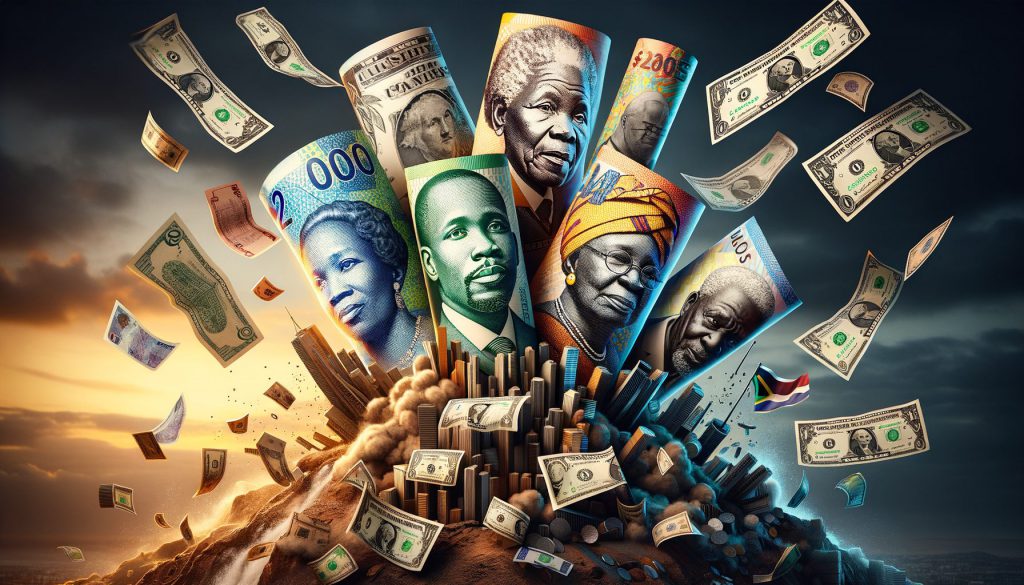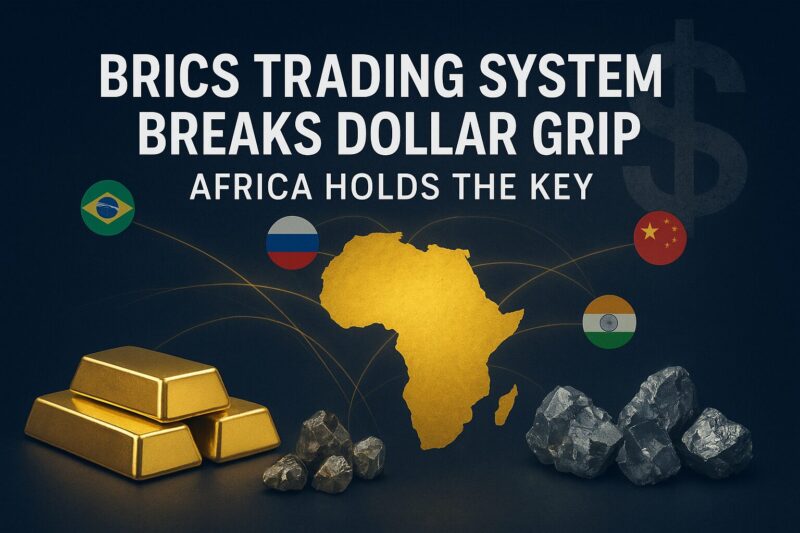The BRICS trading system launched a precious metals exchange in October 2025 that allows nations to trade gold, platinum, and rare earth minerals without US dollars. This trade currency initiative gives Africa unprecedented leverage right now, as BRICS controls roughly 72% of rare earth reserves. With de-dollarization efforts from BRICS accelerating and the dollar posting its worst year since 1973, African nations hold the key to whether this trade currency reform succeeds or fails.
Also Read: BRICS Currency Backed by Gold and XRP Shows Impressive Progress
Africa’s Role In BRICS Trade Currency And De-Dollarization Opportunities


BRICS Trade News: Here’s The Trading System Changes Everything
At the Moscow Financial Forum in October 2025, the BRICS trading system introduced a mechanism where countries can settle trade using physical assets instead of dollars. Shanghai’s gold exchange was designated as the storage hub for nations that watched Russia’s frozen assets and decided never again. BRICS processes about 75% of rare earth minerals globally at the time of writing—materials that are essential for smartphones, electric vehicles, and also military equipment.
In July 2025, Trump announced 10% tariffs on countries supporting BRICS and called the alliance “un-American.” The move backfired completely. Brazil called emergency meetings, and China’s foreign ministry labeled it “global bullying” in official statements. Morgan Stanley tracked the dollar dropping 11% in 2025—its worst decline since 1973. Meanwhile, 68% of BRICS trade now bypasses the dollar entirely, and that’s a significant shift in how the BRICS trading system operates.
Africa’s Leverage in the New Trading System
African countries like Angola, Nigeria, South Africa, and Namibia are ramping up rare earth mining to supply 10% of global demand by 2030, and these initiatives have leveraged numerous significant geological advantages. The BRICS trade currency system needs these minerals desperately right now across multiple essential sectors. So does the West, which has catalyzed various major competitive dynamics. Processing plants are being built locally this time through several key infrastructure projects, and that keeps more value on the continent at the time of writing.
The question that keeps coming up involves certain critical considerations about whether this is really different from past exploitation across various major historical patterns. For decades, African gold built European cathedrals, African diamonds funded foreign wars, and African cobalt powered technologies most Africans couldn’t afford through numerous significant economic imbalances. What’s different now is leverage that has been engineered through several key strategic positions. BRICS and Western powers must compete for African resources, and the BRICS trading system can’t function without African minerals across multiple essential supply chains. The de-dollarization efforts from BRICS depend heavily on resource-backed trade where Africa holds significant cards in this game right now, and these developments have transformed various major aspects of global economics.
Rwanda is doing something interesting with coltan right now through certain critical processing innovations. By processing locally and exporting finished products instead of raw materials, they’re keeping more value at home, and this approach has leveraged several key competitive advantages. It’s a small-scale operation, but it shows what’s possible when African nations own the complete value chain across numerous significant production stages.
What the New System Means for Africa
Three moves separate winners from losers in this trade currency reform arrangement. First, build refineries domestically and export finished products, not raw materials. Second, play both sides strategically and let BRICS and the West compete for partnerships without locking into exclusive deals that create new dependencies. Third, build intra-African trade infrastructure so shipping cobalt from Congo to Nigeria becomes easier than shipping to China, which makes zero sense right now.
The trade currency reform from BRICS offers Africa real leverage for the first time in generations. BRICS didn’t pursue de-dollarization out of fairness—they did it for survival and control. But in doing so, they handed Africa an opportunity to finally shape global trade instead of letting others shape it again.
Also Read: BRICS Pays 43% of Peanuts Exports in the Chinese Yuan
The global financial system reshapes as we speak, and that’s not really up for debate anymore. The only question is whether Africa will shape what comes next or let others shape it. The BRICS trading system represents either Africa’s best opportunity in generations or just another chapter in a familiar story. Which outcome happens depends entirely on decisions African leaders, diaspora communities, and young entrepreneurs make today as they demand better deals.





